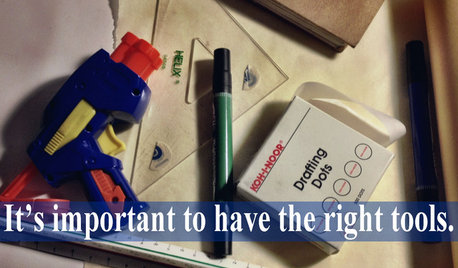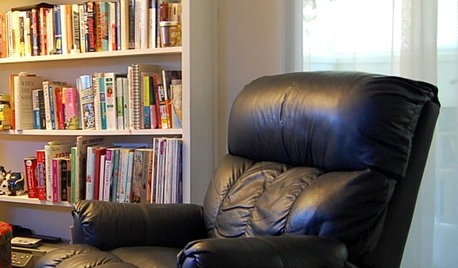NPR piece about retirement
harriethomeowner
16 years ago
Related Stories

FUN HOUZZGuessing Game: What Might Our Living Rooms Say About Us?
Take a shot on your own or go straight to just-for-fun speculations about whose homes these could be
Full Story
WORKING WITH PROSWhat Do Landscape Architects Do?
There are many misconceptions about what landscape architects do. Learn what they bring to a project
Full Story
LIFEHouzz Call: What Has Mom Taught You About Making a Home?
Whether your mother taught you to cook and clean or how to order takeout and let messes be, we'd like to hear about it
Full Story
FUN HOUZZHouzz Call: Tell Us About Your Dream House
Let your home fantasy loose — the sky's the limit, and we want to hear all about it
Full Story
LIFE3 Ways to Get Unstuck — About Organizing, Decorating, Whatever
Break out of the do-nothing rut to accomplish your goals, whether at home or in other parts of your life
Full Story
KITCHEN DESIGNHouzz Call: Tell Us About Your First Kitchen
Great or godforsaken? Ragtag or refined? We want to hear about your younger self’s cooking space
Full Story
COFFEE WITH AN ARCHITECTWhat My Kids Have Taught Me About Working From Home
Candy and Legos aren't the only things certain small people have brought to my architecture business
Full Story
LIFEThe Beautiful Thing About Dad's Chair
My father had his own spot in the house. His father had his own spot. Now I have mine
Full Story
WORKING WITH PROS10 Things Decorators Want You to Know About What They Do
They do more than pick pretty colors. Here's what decorators can do for you — and how you can help them
Full Story
GARDENING GUIDESNew Ways to Think About All That Mulch in the Garden
Before you go making a mountain out of a mulch hill, learn the facts about what your plants and soil really want
Full StorySponsored
More Discussions



raee_gw zone 5b-6a Ohio
saphire
Related Discussions
Building retirement home/rental
Q
10 years from retirement, hopefully
Q
I love NPR
Q
Surprisingly Retired -- long
Q
momto6
alphacat
devorah
zone_8grandma
raee_gw zone 5b-6a Ohio
saphire
saphire
raee_gw zone 5b-6a Ohio
zone_8grandma
jakkom
tlbb
punamytsike
zone_8grandma
punamytsike
harriethomeownerOriginal Author
steve_o
zone_8grandma
punamytsike
chisue
zone_8grandma
raee_gw zone 5b-6a Ohio
jakkom
saphire
carolineb
saphire
harriethomeownerOriginal Author
chisue
momto6
chelone
saphire
saphire
steve_o
chelone
chisue
chelone
chisue
chelone
tlbb
conate
celticmoon
chisue
beware
steve_o
zone_8grandma
chisue
beware
jakkom
chisue